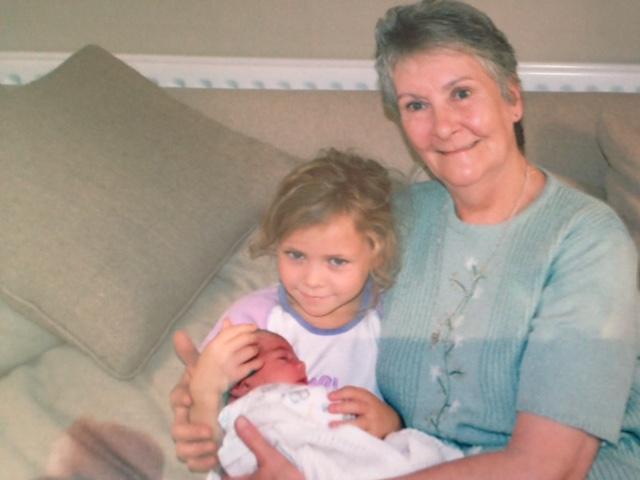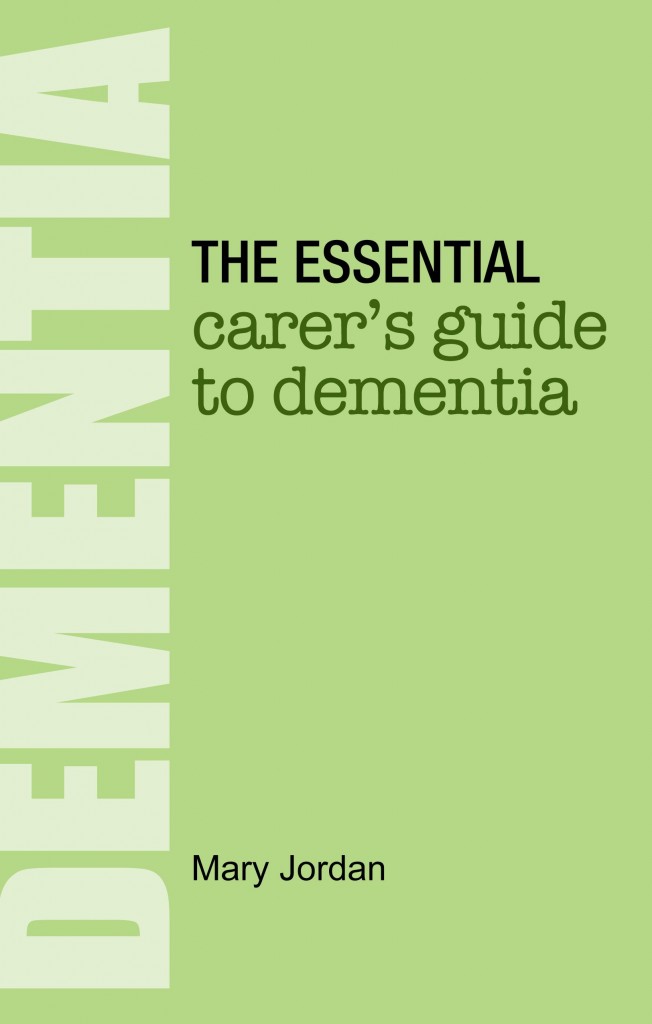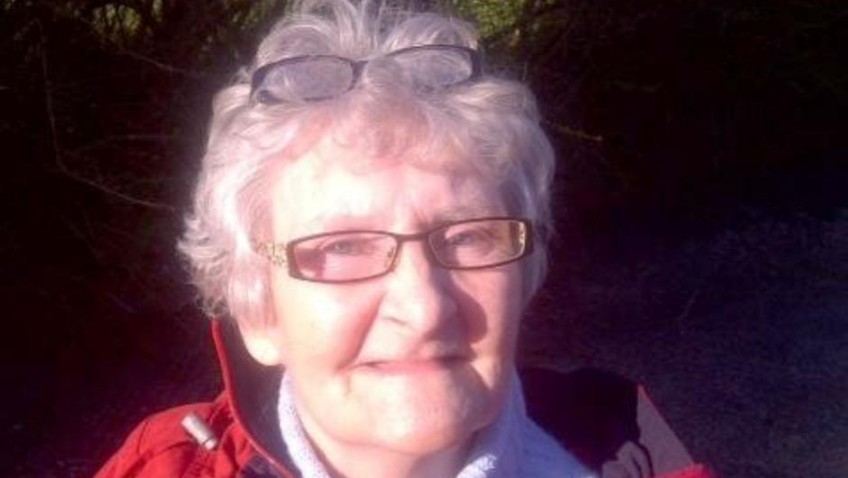Seven years ago, we received the diagnosis that my mum had vascular dementia. There is still confusion over the difference between dementia and Alzheimer’s: there are over 200 causes of dementia, and Alzheimer’s disease, is only one of them.
‘Dementia’ itself is a collection of symptoms that can surface slowly over time, or suddenly with a health setback such as a stroke. Seven years before my mum was diagnosed she had two heart attacks which I think attributed to her dementia.
My parents lived in London most of their adult lives but are from Ireland. When I was in my twenties they moved back to Belfast, mother’s home town. I stayed in London and met my husband, married and had my children there.
At the time of Mum’s diagnosis, I had no idea what it would mean for all of us, but we made the decision to move to Belfast in 2009.
Mum was 68 when she was diagnosed; a kind, bright, lady and an incredibly loving mother. She was very sociable and enjoyed chatting to people and getting involved in community fundraising, but dementia changes all that.
 It’s been a long journey and it’s so true, I once heard: ‘Dementia is the longest goodbye’ and that is so true. The most difficult aspect for me still is that although she is here, she is no longer the same person and has forgotten who I am.
It’s been a long journey and it’s so true, I once heard: ‘Dementia is the longest goodbye’ and that is so true. The most difficult aspect for me still is that although she is here, she is no longer the same person and has forgotten who I am.
She’s knows I’m someone special, somewhere in her brain she knows me, but she’s not sure exactly how or why.
I am so grateful though that my mum was with me and helped me with my three children when they were born. The grandchildren still have her even though she no longer knows who they are, but you can see in her eyes she still loves them dearly, whoever she thinks they are.
Dad looks after her at home. He is her sole carer and he’s just incredible. For a man who couldn’t even cook a meal or understand the banking, he has had a lot to learn. These days he has to do everything for her, even attend to her personal care: it’s hard to witness but he does it with such grace.
I found a very helpful book by Mary Jordan, called The Essential Carer’s Guide to Dementia’. Although we were well beyond the diagnosis early stages that the book talks about, it is full of very practical advice on to legal matters, e.g. Lasting Power of Attorney, amending wills in order that Dad could be in control over everything for Mum, with support from me.
One of the best pieces of advice that is in the book is to build a support network from a variety of resources such as through day care centres or talking to the Alzheimer’s Society. In the early days with mum, she went to an excellent day care centre to give Dad a break.
The Alzheimer’s Society in Belfast provided a lovely lady that came into their home and chatted to her for long enough for Dad to run errands, or just take time for himself.
Like many people, mum was put on Aricept but I honestly don’t know if it helped. Her decline was so rapid, when we first arrived here she looked so thin and ill that I felt her decline would be quick, but it is a long and arduous journey. Her GP and dietician have been a great help in making her life more comfortable.
It seems like forever now that she has had dementia. I found a video of her the other day, and Mary’s book reminded me of the different stages we have gone through from the agitation and anger, to her not being able dress herself and being incontinent.
This book has helped me deal with many practical areas that we have had to deal with, especially understanding and dealing with the behavioural changes that are suddenly thrown at you as:
- Not knowing the difference between night and day and having no concept of time difference
- Wandering due to agitation. It can be very distressing but for mum it didn’t last too long.
- ‘Sundowning and restlessness’ as the book refers to it. Every evening mum would get very distracted and agitated so we played music to help soothe her, music she loved listening to.
- Aggression – sadly my very meek and mild mum gets aggressive but the book has helped me understand that it is the condition my mum has, not my real mum. Aggression is usually first thing in the mornings because she is tired and grumpy
 Below are some of the tips that I have taken from the Essential Carer’s Guide to Dementia. I try and remind myself of these when I am with my Mum and Dad, and sometimes when visitors come in, I gently have to remind them not to ask Mum questions which can cause her distress as she doesn’t know the answers.
Below are some of the tips that I have taken from the Essential Carer’s Guide to Dementia. I try and remind myself of these when I am with my Mum and Dad, and sometimes when visitors come in, I gently have to remind them not to ask Mum questions which can cause her distress as she doesn’t know the answers.
- Make use of pictures and photos e.g.putting pictures of cups and plates on cupboard doors to show what’s inside.
- Always face the person you are talking to and get down or up on to their level.
- Avoid asking complex questions.
- Swearing is a way of expressing an emotion and these words can be the only ones left to do that with so try to figure out what is wrong.
- Reduce choices on offer to allow for a simple ‘yes’ or ‘no’.
- Try not to criticise, we used to do this more in the early days especially when we weren’t sure what was wrong.
- Decide what is essential (e.g.0eating properly) and let go of the unimportant things e.g. wearing the ‘right’ clothes.
- Do not let yourself be bullied or intimidated, in the early days mum could be quite forceful and adamant but today she’s more compliant.
- Try and prevent boredom with appropriate activities and music is fabulous or read the paper as enjoys hearing news.
I think touch is also very important and when I go in to see my mum I always touch her arm, hand or shoulder as I this is important.
Today we have a care package in place where someone comes in to help wash and dress her, and she is now fed pureed food as she can no longer chew. We still give her soft finger food to try and encourage some independence but she is rather messy, bless her.
One other thing is pain, it’s very hard for dementia patients to identify pain and mum seems to get lots of UTIs even though we make sure she drinks her fluids out of a baby cup with a straw but one does have to be vigilant and UTIs can come quickly so quickly and make her affect her badly.
I think being able to adapt to change, ask for help and as Mary Jordan’s book says each person will go through the experience differently plus, which I found very true: “Finally, accept YOU may need to change YOUR behaviour because the person with dementia cannot control theirs.”
Yesterday I was in washing her hair and I enjoyed a “golden moment” when she smiled. Quality of life is not great for her but we still have a laugh and when I see the love and happiness at times in her eyes I am so glad I am here to look after her as I know she would have done for me if tables were turned.
Marie Jones 47, Belfast
‘The Essential Carer’s Guide to Dementia’ is published by Hammersmith Health Books at £14.99 for the book and £6.99 for the ebook visit www.hammersmithbooks.co.uk





